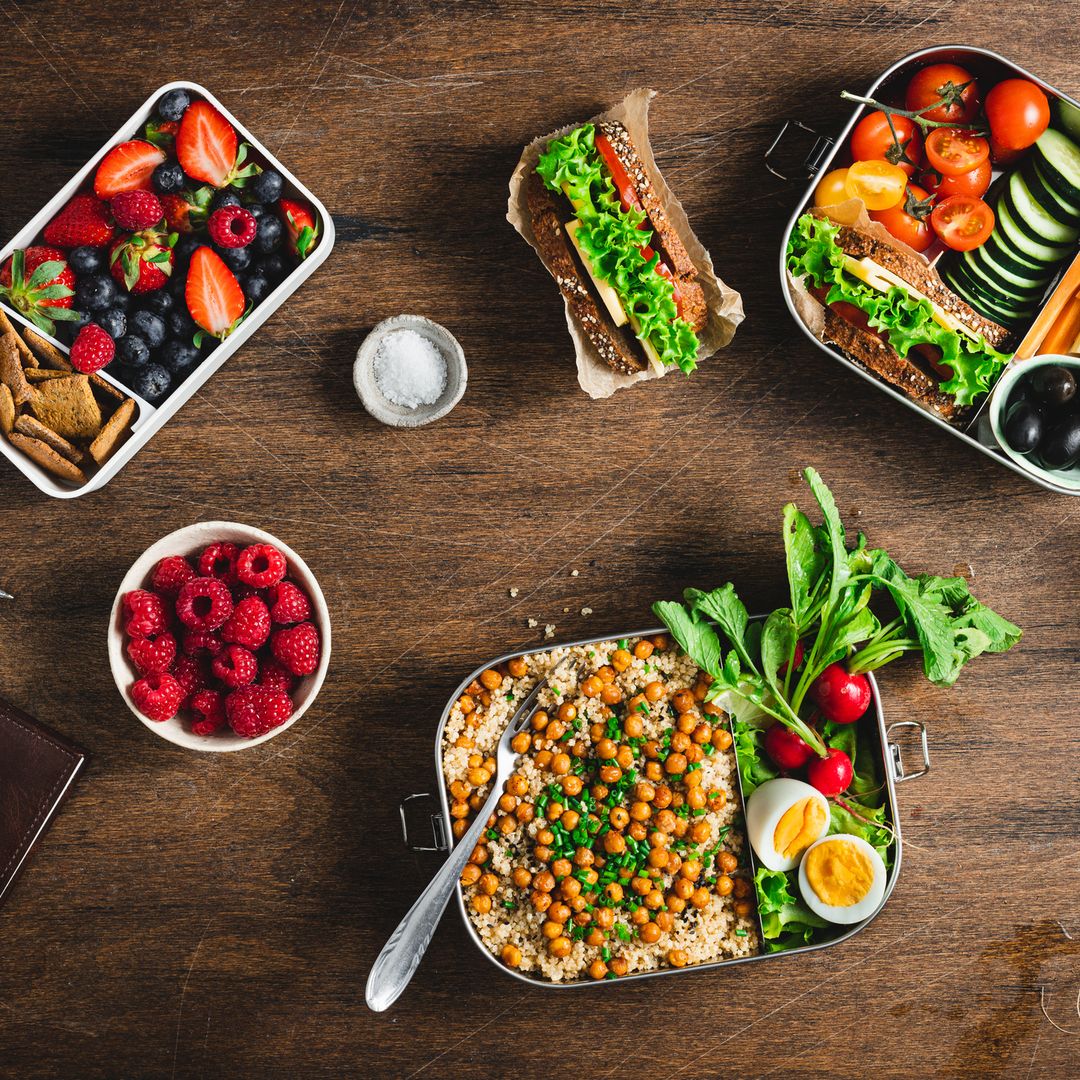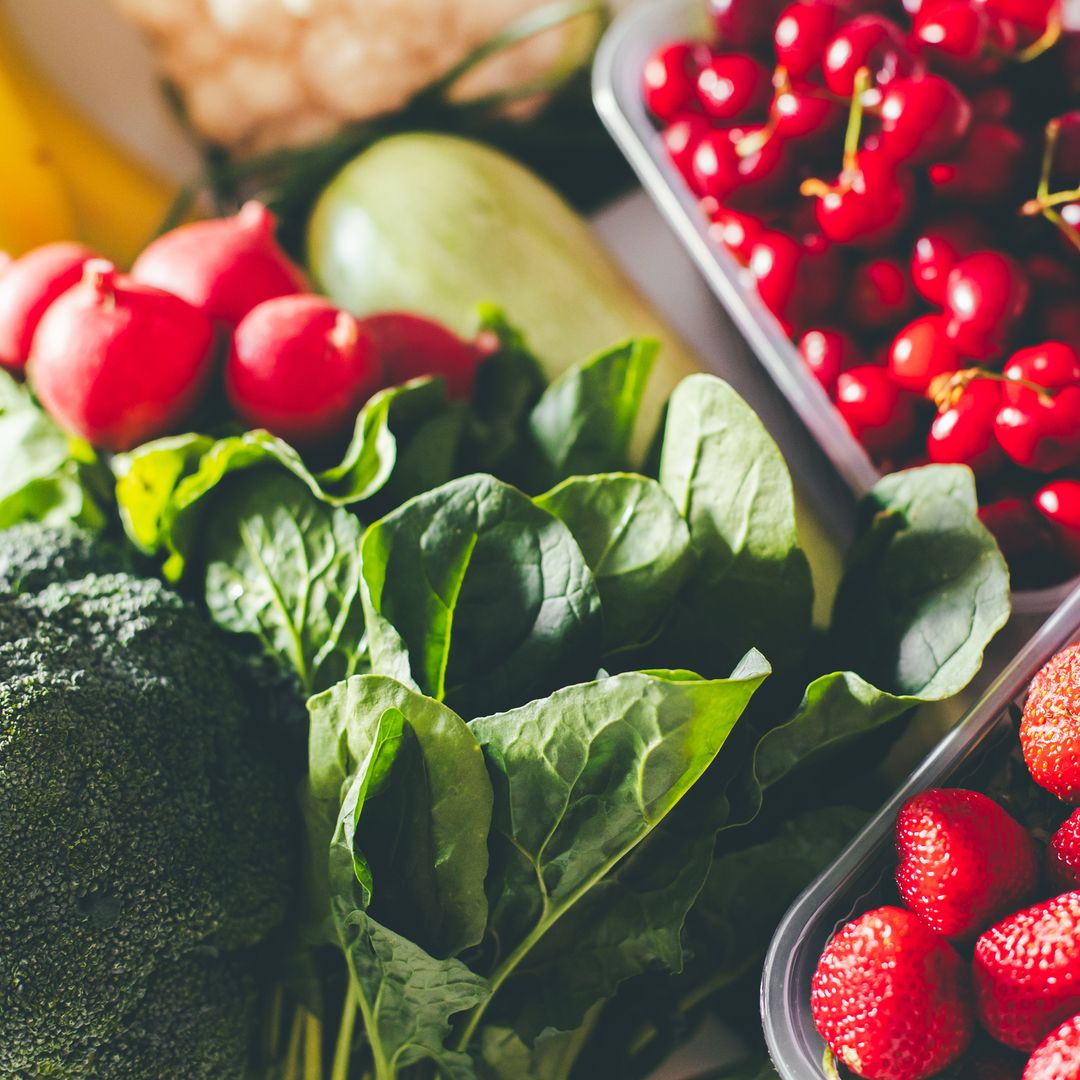Carrots are naturally low in calories
An 80g serving of cooked carrots contains just 24 calories, making them a great choice if you’re watching your weight
Carrots are naturally low in fat and saturates
Health experts recommend we eat less fat and fewer saturates to keep our hearts healthy. This makes carrots a great choice. An 80g serving of cooked carrots contains just 0.3g fat and 0.1g saturates
Carrots count towards your five-a-day
Like all veg, an 80g serving of carrots – that’s equivalent to about ½ a medium-sized carrot or three heaped tablespoons – counts as one of your five portions of fruit and veg. Better still, all carrots including fresh, frozen and canned count, whether they’re served as a side dish, cooked in a soup or stew, raw in a salad or made into a juice
Carrots are naturally low in salt
To stay healthy and reduce your risk of getting high blood pressure, nutrition experts recommend having no more than 6g of salt a day. Good news then that carrots are naturally low in salt. An 80g serving of cooked carrots contains just 0.1g salt, providing you haven’t added salt to the cooking water
Carrots are high in fibre
Carrots are packed with fibre, which helps keep the digestive system healthy and helps balance blood sugar levels. Fibre also helps you to feel fuller for longer so you find it easier to maintain your weight. An 80g serving of cooked carrots contains 2g fibre – more than a tenth of the recommended daily amount for adults.
Carrots help boost our intake of vitamin A
Carrots are packed with a nutrient called beta-carotene, which is converted into vitamin A in the body. Of all fruit and vegetables, carrots are actually the best source of beta-carotene. An 80g serving of cooked carrots contains more than twice the recommended daily amount (RDA) of vitamin A equivalent needed by adults. This is good news as many children and adults have poor intakes of this nutrient. This is worrying as vitamin A aids the growth of healthy bones and teeth
Carrots really can help you see in the dark
Beta-carotene found in large amounts in carrots is converted into vitamin A in the body and this vitamin is vital for healthy vision. Vitamin A works its eye health magic by being transformed into a purple pigment called rhodopsin in the retina, and this pigment is essential for vision in dim light
Carrots are great for healthy, younger-looking skin
Beta-carotene is also an important antioxidant nutrient. This is great news for our skin as its antioxidant action may help to act against age-accelerating free radicals, so that skin remains healthy and elastic
Carrots may help to protect your skin from sun damage
When taken on a regular basis, beta-carotene can help to protect skin from excessive ultra-violet (UV) radiation and sunburn. That’s not to say you should ditch your sunscreen if you eat a lot of carrots! You should still follow sun safety advice and cover up during the hottest part of the day, wear a hat and regularly apply sun screen with a high SPF
Carrots help to keep your immune system strong
Vitamin A is essential for the proper functioning of the immune system. This nutrient keeps the skin and cells that line the airways, digestive tract and urinary tract healthy, so they act as barriers and form the body’s first line of defense against infection
Adding a little fat enhances the goodness of carrots in salad
After years of being told to skip the mayo on salads, it might come as a surprise to learn that a drizzle of French dressing is the perfect accompaniment to salad, benefiting both taste and health. Research from Ohio State University in America found that more carotenoids such as beta-carotene were absorbed when a fresh salad consisting of carrots, romaine lettuce, spinach and cherry tomatoes was eaten with full-fat salad dressing compared with fat-free salad dressing
Don’t worry about cooking carrots
If your kids will only eat mashed carrot, don’t worry – it’s a nutritional bonus! Research shows more beta-carotene is absorbed from cooked, puréed carrots than from raw ones







